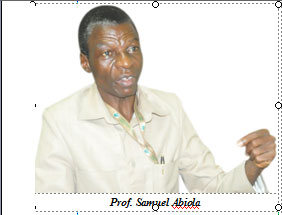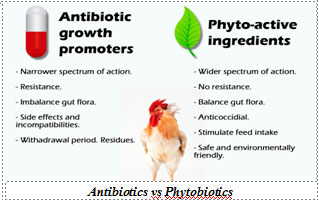
With the recent ban on the use of Antibiotic Growth Promoters (AGP) on animals by the European Union (EU), Nigerians have been cautioned against consuming animal products such as meat, eggs and milk that contain traces of such drugs. This call was made by Professor Samuel Abiola, an expert in Monogastric Animal Production in the Department of Animal Production and Health, College of Animal Science and Livestock Production (COLANIM) of the University.

According to the researcher, the EU’s move to discourage the use of antibiotics in treating animals had made animal scientists to look for other ways of improving performance and health of animals by using Phytobiotics, which are plant derivatives. Speaking on his research grant titled, “Ethno-Veterinary Interventions and Phytobiotics Options in Contemporary and Conventional Poultry Production Systems”, which was fully sponsored by the Tertiary Education Trust Fund (TETFund) and supervised by the University’s Directorate of Grants Management (DGM), Professor Abiola said that it had been documented that there were residual effects in such meat, milk and eggs due to the over-use of the AGP and the failure to observe withdrawal period, thus necessitating the ban by the EU.

According to him, in finding out the potentials of plant derivatives in the treatment of animals at the village level, a multidisciplinary research team was set up in FUNAAB comprising veterinarians, agricultural economist, agricultural extension expert and animal scientists with the involvement of postgraduate and undergraduate students. Professor Abiola noted that farmers in the villages have the traditional methods of treating their animals, right from the time of domestication of livestock species, a development that led to conducting of research in some selected villages in four local government areas of Ogun State, namely: Ifo, Odeda, Ewekoro and Sagamu. Hence, the research team was able to gather from the preliminary study, that different plants, roots and herbs were being used in the treatment of parasitic and bacterial infections in the animals.
The Don revealed that the most important plant being used is known as Lageneria breviflora, which is also known as Itagiri (in Yoruba language). He stated further that the fruit, which contains some phytochemicals and active ingredients, which help in combating certain infections in animals. He stated that farmers in the villages only chopped the fruits into pieces and soak in water without having adequate measurement or standardisation. He, however, expressed his delight over the achievements made in the research, which had produced two PhD students, and four first degree graduates. Findings from the research have also been presented at conferences. On the EU ban, Professor Abiola frowned at the inability of not being able to export some Nigerian agricultural products to Europe and America because of the failure of the country to meet the required international standards and specifications.
“We are blessed in this country, we have both human and material resources, only that we cannot harness the resources to promote the economy of the country”, he added. On why Nigeria is not meeting the required international standards, he said it was difficult for the country to meet the required standards because of non-adherence to rules and regulations, particularly on livestock production and processing. For instance, abattoir and slaughter slab operations are very defective in many places in Nigeria, he concluded.
Professor Abiola warned that meat meant for human consumption could easily be contaminated in many ways right from the time of slaughtering, processing and transporting to the market. He stressed further on the need for facilities such as abattoirs having cold rooms with uninterrupted electricity and clean environment. He said the pre-slaughter treatment of animals contribute to the poor quality of the meat. Such ill-treatment include beating or dragging of animals to the slab before slaughtering, which often led to body injuries and bruises on the animals. This could, in turn, cause infections and negatively affect the quality of the hide and skin being produced. To avert this, he suggested that animals that are to be slaughtered, should be transported to the abattoir or slaughter slab.
He enumerated the challenges being faced in the course of carrying out research on medicinal plants to include lack of farmers’ readiness or willingness to provide information on herbal medicine at the village level as well as lack of adequate facilities to carry out the research. Projecting into the future, Professor Abiola suggested participatory approach in which farmers will be partly involved in future research on medicinal plants.
